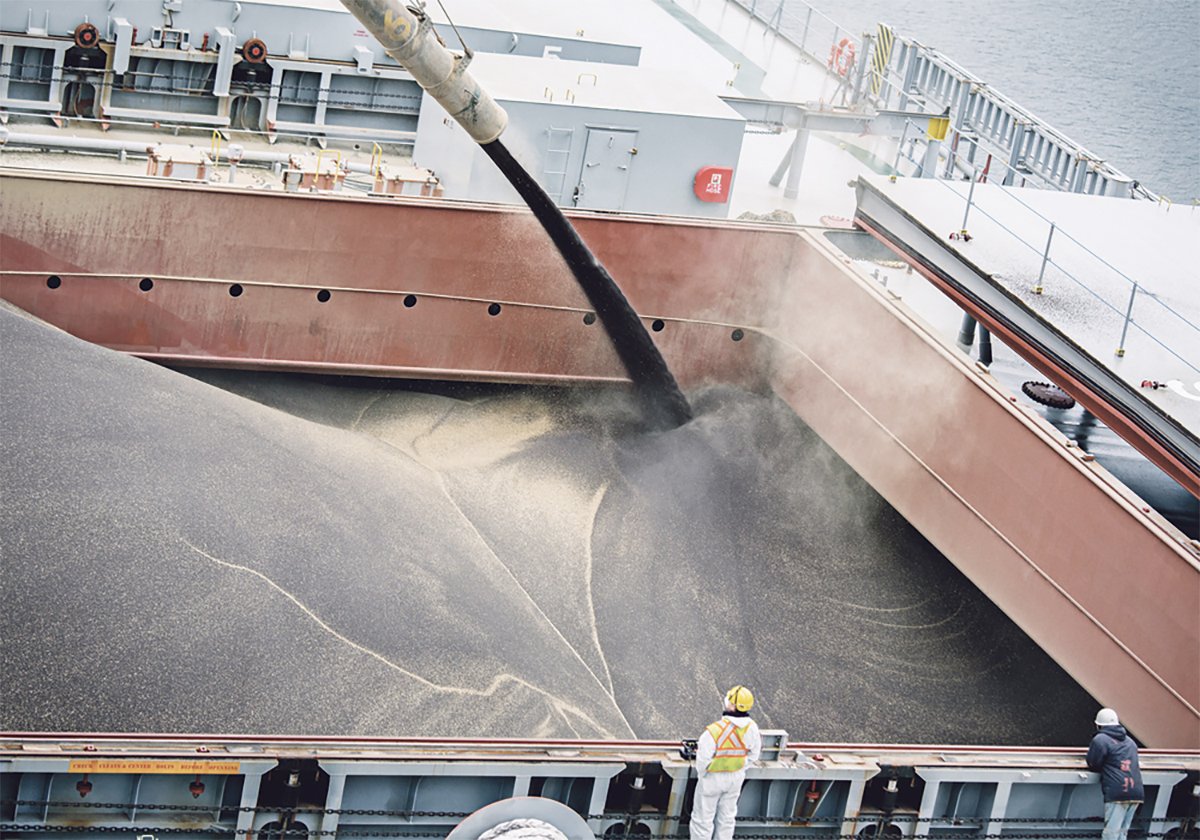When the United States International Trade Commission announced it was going to slap tariffs on Canadian hard red spring wheat imports, it didn’t explain why.
That left Canadian Wheat Board lawyer Jim McLandress wondering what logic could have led the ITC to conclude that Canadian durum imports were OK, but red spring wheat imports were hurting American farmers.
Now that the ITC has released a written ruling explaining how two of its commissioners determined tariffs should be applied to Canadian wheat, McLandress remains confused.
“They still don’t make any sense,” said McLandress.
Read Also

Exports off to a slow start after last year’s torrid pace
Canadian grain, oilseed and pulse exports are off to a slow start, but there are some bright spots, according to the Canadian Grain Commission’s most recent weekly export data report.
“They’ve offered their justifications, but they don’t hold up. There is not a logical reason for what they found.”
The wheat board is appealing the ruling against hard red spring wheat by taking it to a panel of the North American Free Trade Agreement. The federal government is also challenging the American government at the World Trade Organization.
The ITC ruling was not a clear loss for Canadian farmers. The four-person panel unanimously found that Canadian durum imports have not significantly hurt American farmers.
And two of the commissioners found that Canadian hard red spring wheat imports didn’t hurt American farmers.
Since under ITC rules a split decision means that a complaint wins, the 2-2 ruling led to the imposition of tariffs.
The written decision by the two commissioners who found against Canadian wheat focuses on what happened to the price of wheat in the U.S. after Canadian wheat started to be imported last year.
They concluded that because the price fell while Canadian imports came in, the Canadian imports caused the price effect and therefore injured American farmers.
The same thing didn’t happen for durum, where no Canadian shipments were arriving in the U.S. but the price fell anyway.
During hearings before the ITC, Canadian Wheat Board representatives insisted they charge American millers a premium price over the prevailing North American price for grain. And they argued that grain prices in the United States are set by the world market, not by Canadian sales to the U.S.
Wheat board farmer-director Larry Hill said the board is going to keep fighting, even if an appeal could cost up to $1 million. Not fighting it would cost much more.
“The American market is a market that recognizes quality and will pay for it, and Canada has got that quality product and we need to insist on our right to trade fairly into that market,” said Hill.
“The frustrating part is that this is going to cost farmers money.”
The North Dakota Wheat Commission is also ready to keep fighting. It launched the complaint that ended up in the ITC’s split decision.
NDWC spokesperson Ellen Huber said her organization will be “vigorously defending the spring wheat ruling.”
The commission has not yet decided whether to appeal the durum ruling.

















